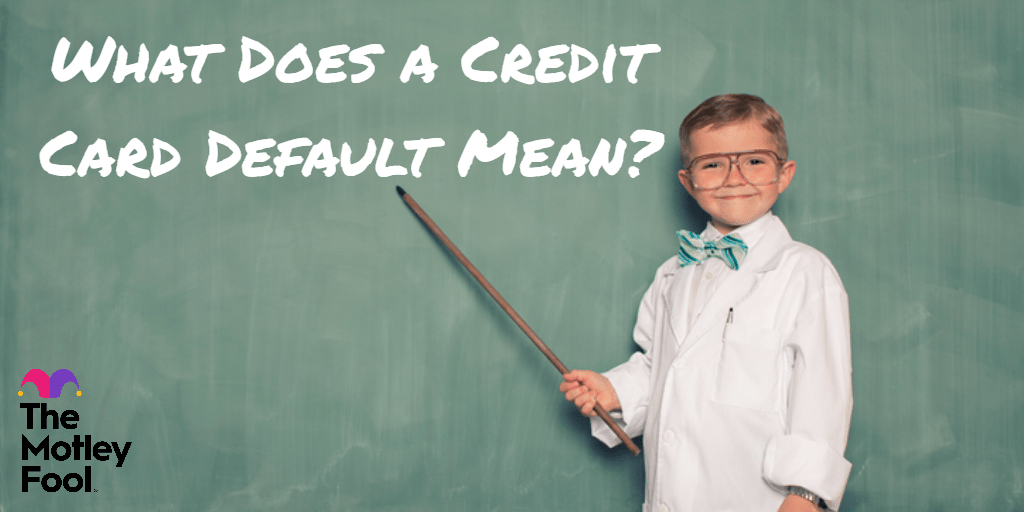A credit card default happens when you’re severely late on a credit payment, usually six months or longer. Defaults can cause serious damage to your credit score, not to mention cost you lost money in interest charges. If you’re considering defaulting on a credit card, or you’re curious how it works, here’s what you should know.
What is a credit card default?
A credit card default is the failure to make at least the minimum payment on your statement balance over an extended period of time. Typically, when you’re fewer than 30 days late on a credit card payment, your card issuer will label your account delinquent — not a default. You’ll start paying APR on unpaid charges, and you’ll likely pay a late penalty, too.
After 30 days, your card issuer will report the late payment to credit bureaus, such as Equifax and TransUnion. Between 30 days and 180 days, your card issuer will then start contacting you in order to set up a repayment plan. If you ignore them and fail to repay at least the minimum after 180 days, your card issuer will close your account and label it a “charge-off.” In the eyes of the crediting world, you now have a credit card default, and your card issuer will likely sell your case to a debt-collection agency.
How does it affect your credit score?
Badly. Very, very badly.
Let’s start with the first negative impact: the 30-day late payment. If you’re late on a credit card payment, but you pay it within 30 days, your card issuer will likely not report the late payment to credit bureaus. But if you’re more than 30 days late on a payment, your card issuer will report the payment, which will then hurt your score. Late payments can stay on your credit report for up to six years, meaning it could hurt your score long after it happened.
For every month you don’t pay at least the minimum, your delinquency will further hurt your score. When you cross from delinquent to credit card default, your score will take yet another beating — one that may be tough to recoil from. It’s not impossible to recover from a default, but considering that defaults stay on your credit report for six years, you’ll have a long road ahead of you.
How can you deal with a default?
With a credit card default, “doing nothing” only defers the consequences. Even if you don’t have collection agencies breathing down your neck, the longer you postpone the repayment, the worse your credit score will become.
The best option is to repay your credit card debt in full. You can possibly negotiate a lower interest rate with your lender, especially if you promise to repay your charges within a defined period of time. You could also seek the help of a credit counselor or debt-management program.
As a last resort, you can file bankruptcy. By filing bankruptcy, you could have the debt discharged, or you’ll set up a repayment plan you can afford. Considering that bankruptcies stay on your credit report for six to seven years, you’ll want to consider this decision carefully.
What happens if you never pay back your credit card debt?
At a certain point, your credit card company will likely sell the debt to a debt-collection agency, who will then start pursuing you for it. They’ll likely call you persistently, making sure the debt is at the top of mind for you. Though they have the right to call you, debt-collection agencies don’t have the right to harass you. If you feel an agency is abusing you, you can contact the Financial Consumer Agency of Canada to understand your rights.
Occasionally, a debt-collection agency will take you to court for your credit card default, though your debt has to be considerably high for this to occur. If they win in court, however, they could garnish your wages. That said, Canada has certain statutes of limitation, which stop collectors from suing you after a specific number of years has passed since you last made a payment (the exact number of years depends on your province).
Even if they don’t sue you, your credit card default will continue to haunt your credit score. Until you’ve properly dealt with the default, you’ll find it nearly impossible to rebuild your credit score, as creditors will continue to report your default to credit bureaus.
Can you improve your credit score after a default?
Thought it won’t be easy, yes, you can improve your credit score after a credit card default.
One possible method is to get a secured credit card. Secured credit cards work like this: you put down an initial deposit, usually equal to your credit card’s credit limits, in order to use the card. If you default on the secured credit card, your card issuer will use the initial deposit to cover the unpaid charges. As you pay back what you borrow, making sure not to charge too much, you may see a steady improvement in your credit score.
If you haven’t defaulted, but you’re considering it, you could benefit tremendously from a balance-transfer credit card. With a balance-transfer credit card, you transfer credit card debt from one card (or several cards) to a new credit card, usually one with a lower intro APR. The lower APR on these cards helps you pay less toward interest and more toward your principal, which could be the boost you need to get out of credit card debt.
Some offers on The Motley Fool are from our partners — it’s part of how we make money and keep this site going. But does that impact our reviews? Nope. Our commitment is to you. If a product isn’t any good, our review will reflect that, or we won’t list it at all. Also, while we aim to feature the best products available, we do not review every product on the market.
